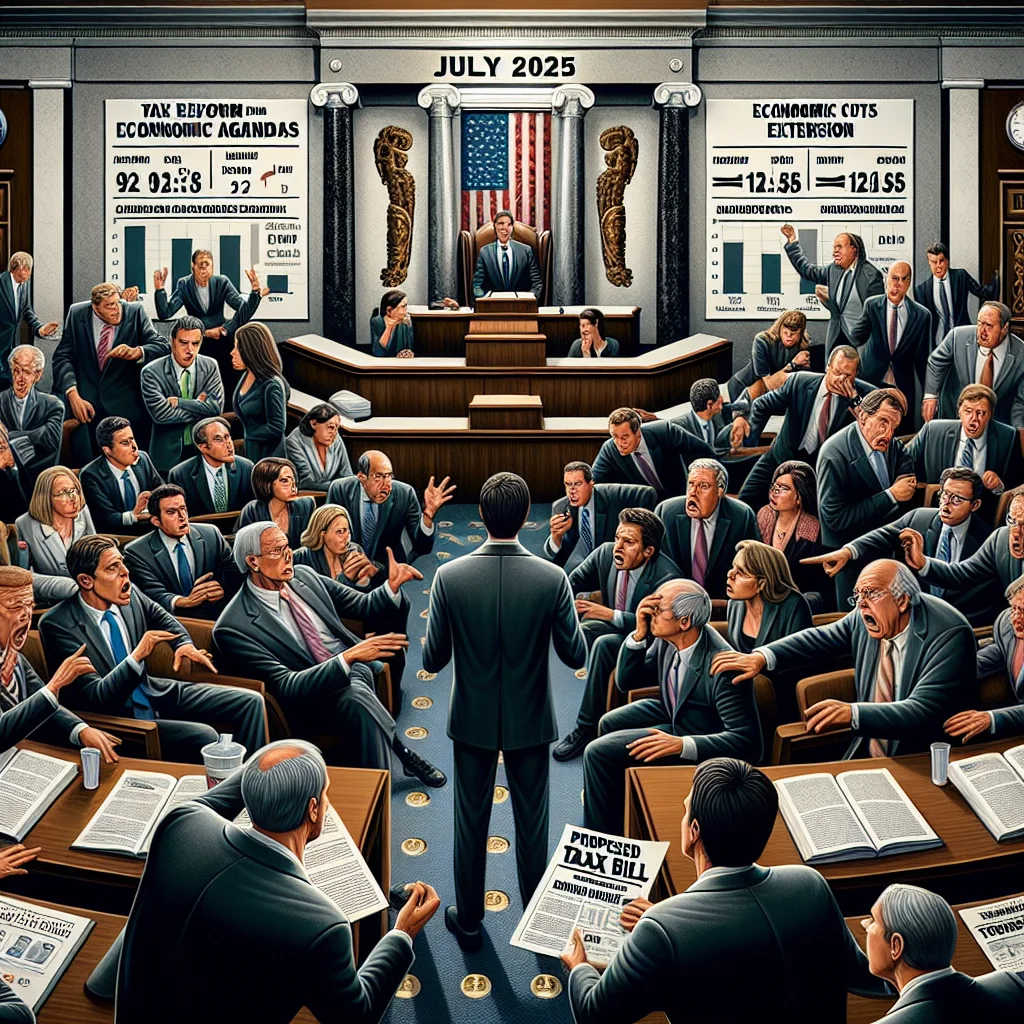
Washington, D.C. — Deep divisions among House Republicans have delayed a pivotal vote on the Trump-backed tax overhaul bill, raising questions about the party’s ability to deliver a major legislative victory ahead of the 2026 midterm elections.
The legislation, a cornerstone of former President Donald Trump’s economic agenda in his current campaign, seeks to extend and expand many provisions of the 2017 Tax Cuts and Jobs Act, which are set to expire at the end of 2025. The new bill features further reductions in individual and corporate tax rates, enhanced child tax credits, and adjustments to estate taxes.
Conservative vs. Moderate Split Stalls Progress
Despite Republican control of the House, the measure has been stalled by internal disputes between the party’s conservative and moderate factions. Members of the conservative House Freedom Caucus have demanded deeper spending cuts and stricter work requirements for social programs as conditions for their support. Meanwhile, moderates from swing districts have expressed concerns about the bill’s impact on the federal deficit and potential reductions to popular deductions, such as those for state and local taxes (SALT).
House Speaker Mike Johnson (R-LA) has spent much of the week in closed-door negotiations, attempting to bridge the divide. "We are committed to delivering meaningful tax relief for American families and businesses," Johnson said in a statement released Tuesday, "but we must ensure that the legislation reflects the values and priorities of our entire conference." No floor vote has been scheduled as of Wednesday morning.
Implications for Trump’s 2026 Agenda
The delay comes at a crucial moment for Republicans, as Trump seeks to energize his base with promises of continued economic growth and tax relief. The former president has made the tax bill a centerpiece of his campaign, touting it at rallies and on social media as essential to "restoring American prosperity."
Democrats have seized on the Republican discord, arguing that the proposed cuts primarily benefit the wealthy and would increase the national debt. House Minority Leader Hakeem Jeffries (D-NY) criticized the bill Tuesday, saying, “This is more of the same trickle-down economics that leave working Americans behind.”
What’s at Stake
- Expiration of 2017 Tax Cuts: Without congressional action, tax rates for individuals and businesses will rise in 2026.
- Economic Uncertainty: The IRS and Treasury Department have warned that ongoing uncertainty complicates tax planning for individuals and corporations.
- Political Ramifications: The outcome could influence key House and Senate races next year, as both parties vie to shape the post-2025 tax landscape.
With the July 4th recess looming, House leadership faces mounting pressure to resolve the impasse and move the bill forward. The Senate, narrowly controlled by Democrats, has signaled it will not take up any tax legislation unless it includes significant bipartisan input.
This story will be updated as the situation develops.












